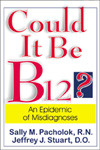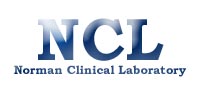Roach, et al.
| "80 to 90 percent of untreated patients will develop
disorders of the nervous system....If treatment is initiated within 3-6 months
after onset of neurologic dysfunction, most neurologic deficits will resolve"24
| |
Halliday, et al.
| "Neuropsychiatric disturbances due to cobalamin deficiency
in the absence of anemia should not be overlooked. The failure to make an early
diagnosis will delay an effective therapy and result in possible irreversible
neurologic deficits."67 | |
Martin, et al.
| "...Cobalamin therapy may lead to cognitive recovery
in some patients...The window of opportunity for effective intervention may
be as short as one year from the onset of medical symptoms...Clinicians should
remain vigilant in screening for B12 deficiency, especially in patients with
the recent onset of mental changes".25 | |
Carmel.
| "Projections from existing data suggest that millions of elderly
Americans have low cobalamin levels or metabolic evidence of cobalamin deficiency."68 | |
Swain.
| "Screening of the elderly asymptomatic populations should be
considered as the initial signs and symptoms of cobalamin deficiency may be
subtle."69 | |
McCann.
| "The concentration of cobalamin in serum at a certain point
may not necessarily reflect the amounts of MMA accumulated in tissues, whereas
urine excretion of MMA is likely to be more reliable in this respect. Moreover,
collection of blood is fraught with known biohazards; it is invasive to the
patient and more expensive than random urine collection."40 | |
Eggersten et al.
| "In conclusion, our results support the views in the
recent timely review by Stabler8 that cobalamin deficiency is found frequently
enough in older people to justify screening."70 | |
Norman.
| "Many of the patients with severe permanent neurologic
disability had neurologic manifestations attributable to B12 deficiency years
prior to diagnosis, and diagnosis often had been delayed because the individual
had slight or no anemia. ……. Accordingly, data from our studies indicate
undiagnosed B12 deficiency in the apparently healthy elderly is a major health
problem which can be prevented to a large degree through early detection by
uMMA screening and treatment before irreversible neurologic damage is suffered."13 | |
Wieland.
| "In the individual with macrocytosis, (MCV = 112) mean corpuscular
volume reverted to normal and in the patient with early dementia, a dramatic
clinical improvement occurred. These observations (6% incidence) agree with
those of Norman supporting his contention that B12 deficiency in the apparently
healthy elderly is a major problem, and that periodic screening should be recommended."71 | |
Pruthi and Tefferi.
| "Because of the difficulties in diagnosing cobalamin
(Cbl) deficiency, alternatives to measuring Cbl have been sought. Determining
the uMMA level is a less invasive, more practical, and possibly, more sensitive
method."41 | |
Panke T.
| "SMMA suffers from falsely high values in patients with renal
insufficiency and/or in patients with intravascular volume depletion. Therefore,
it is highly recommended that uMMA be ordered. In suMMAry, routine reliance
on serum vitamin B12 levels to confirm early deficiencies is not sufficient
to detect all cases. Especially where there are neuropsychiatric symptoms, one
should order uMMA levels."72 | |
Murray.
| "Of these three tests (serum B12, uMMA, and Hcys), the uMMA
assay is perhaps the best test because it is sensitive, noninvasive, and relatively
convenient for the patient." 73 | |
Donaldson.
| "The uMMA assay is effective for identifying early metabolic
cobalamin deficiency."5 | |
Seshadri.
| "..there is a strong, graded association between Hcys levels
and the risk of AD .. similar to the increase in the risks of death from cardiovascular
causes and stroke…Hcys levels measured 8 years before .. suggest that elevation
of Hcys preceded the onset of dementia".64 | |
(Note Importance of Preventive Medicine Section where
Hcys levels in nonanemic seniors with mild B12 deficiency exceed double the
risk factor for developing AD or cardiovascular disease.)
|

